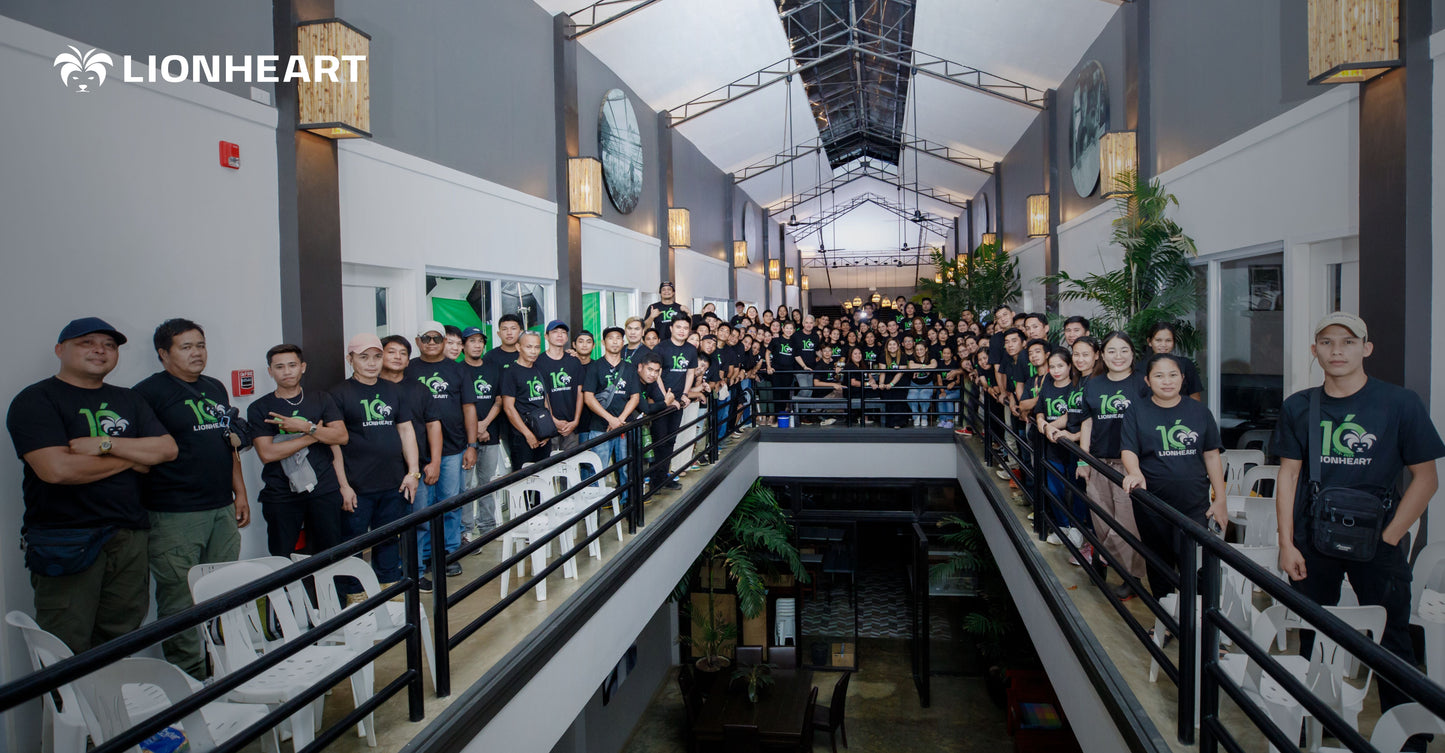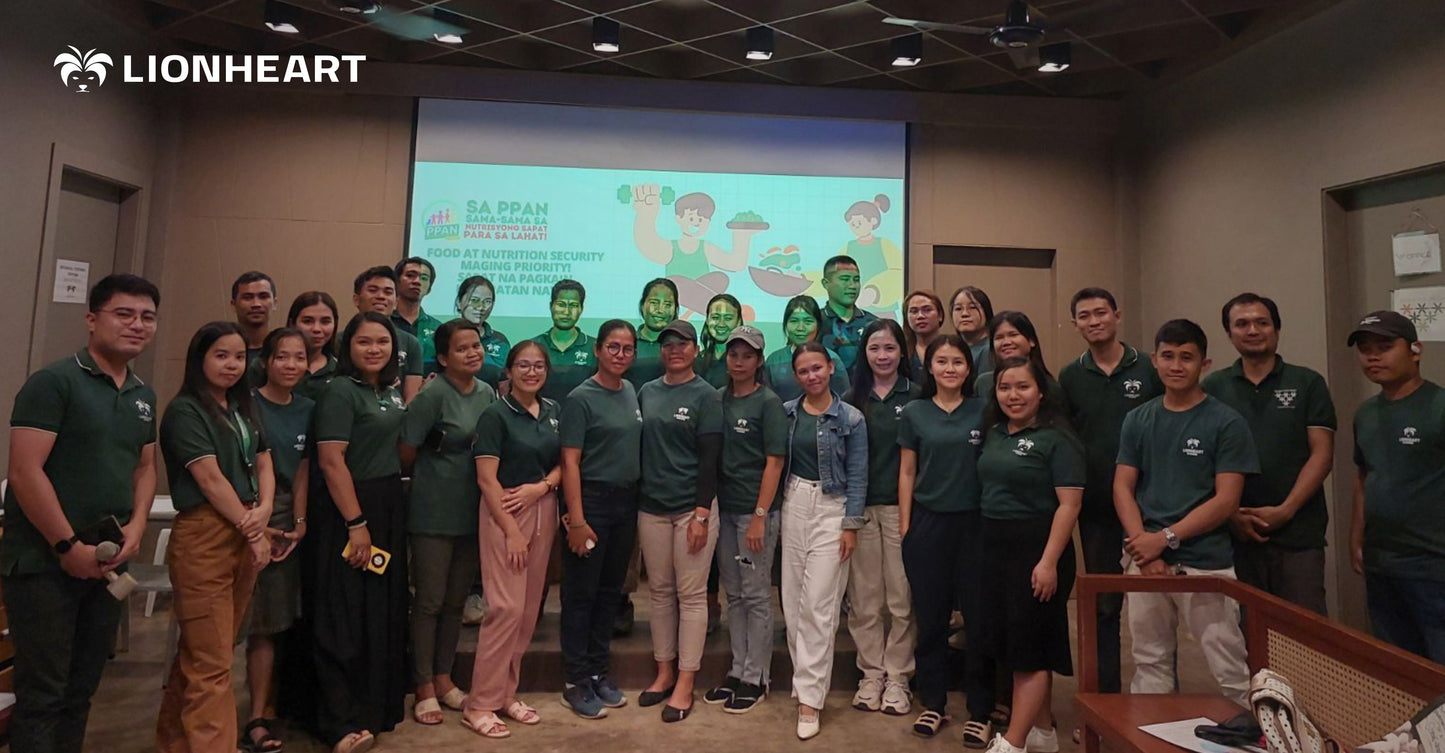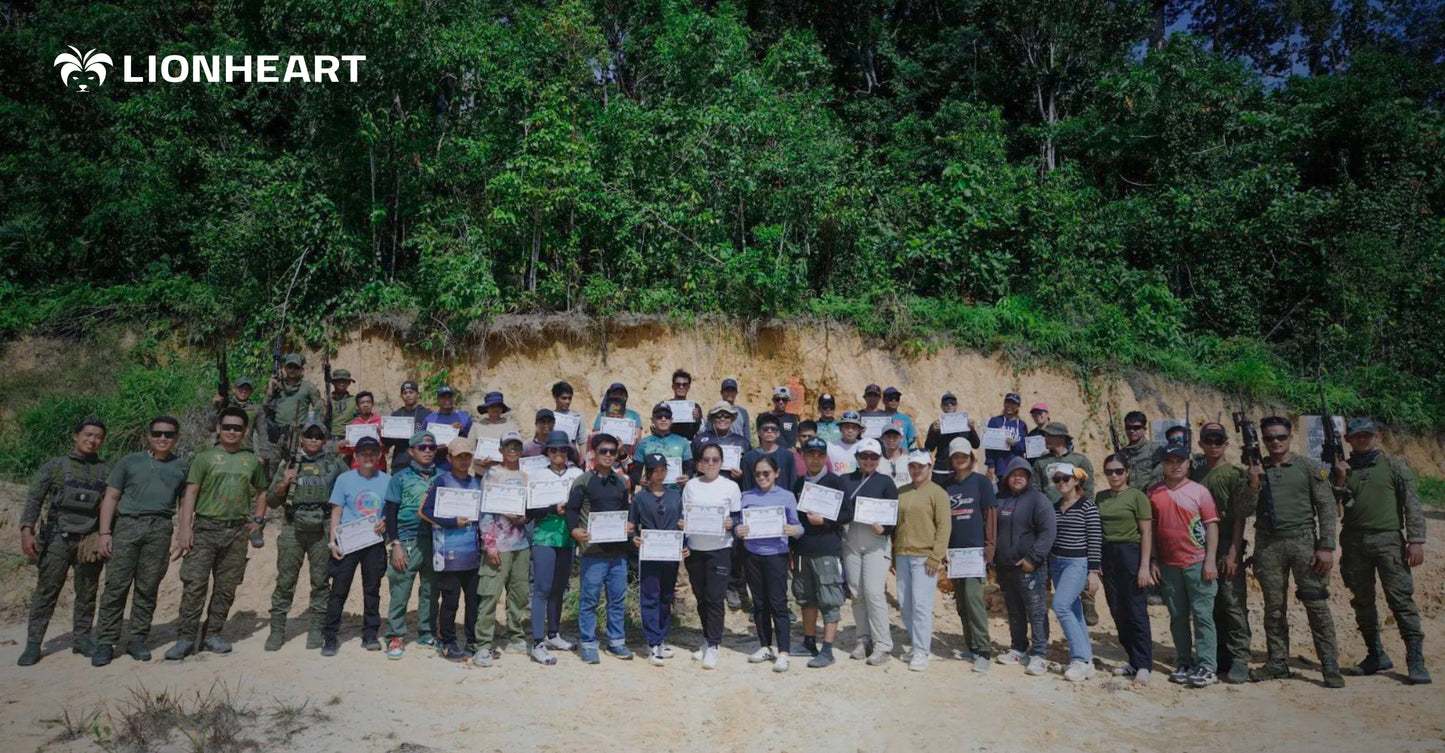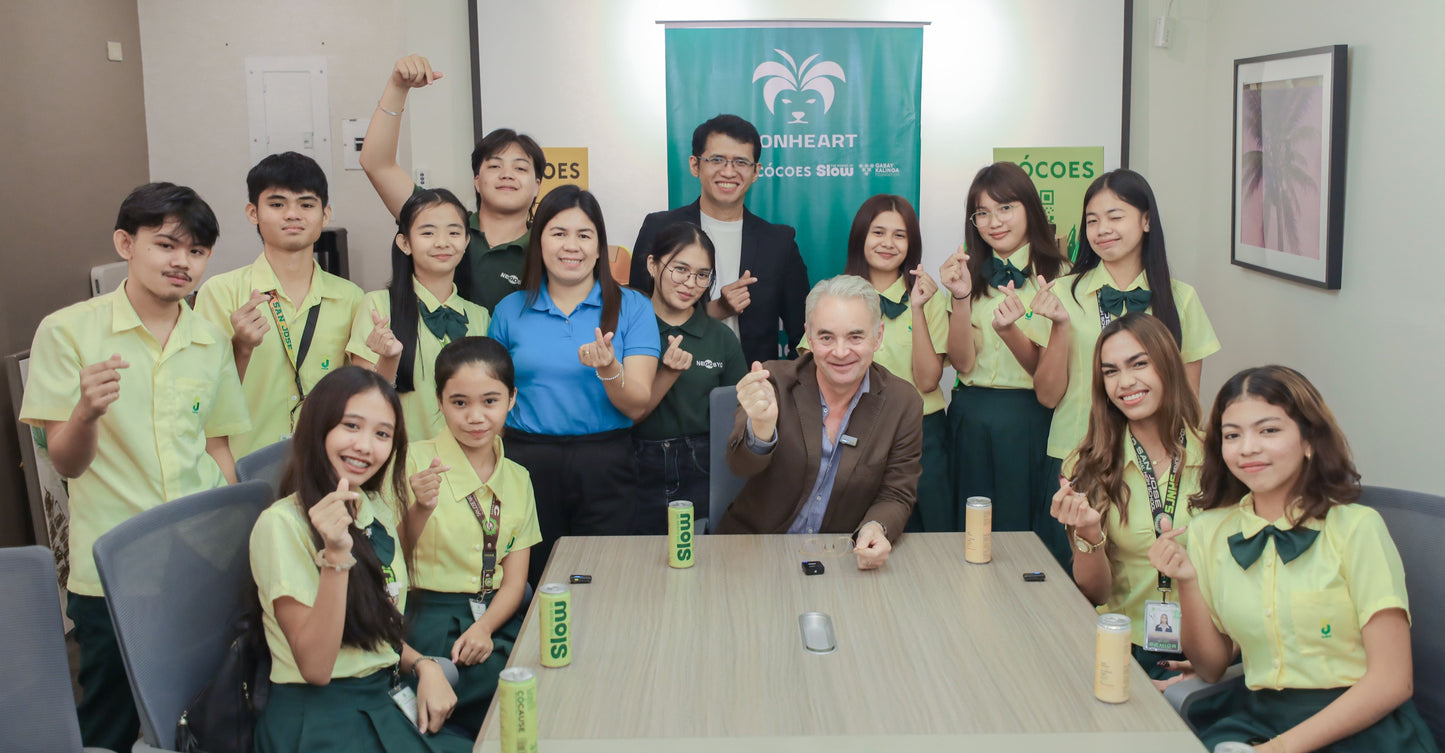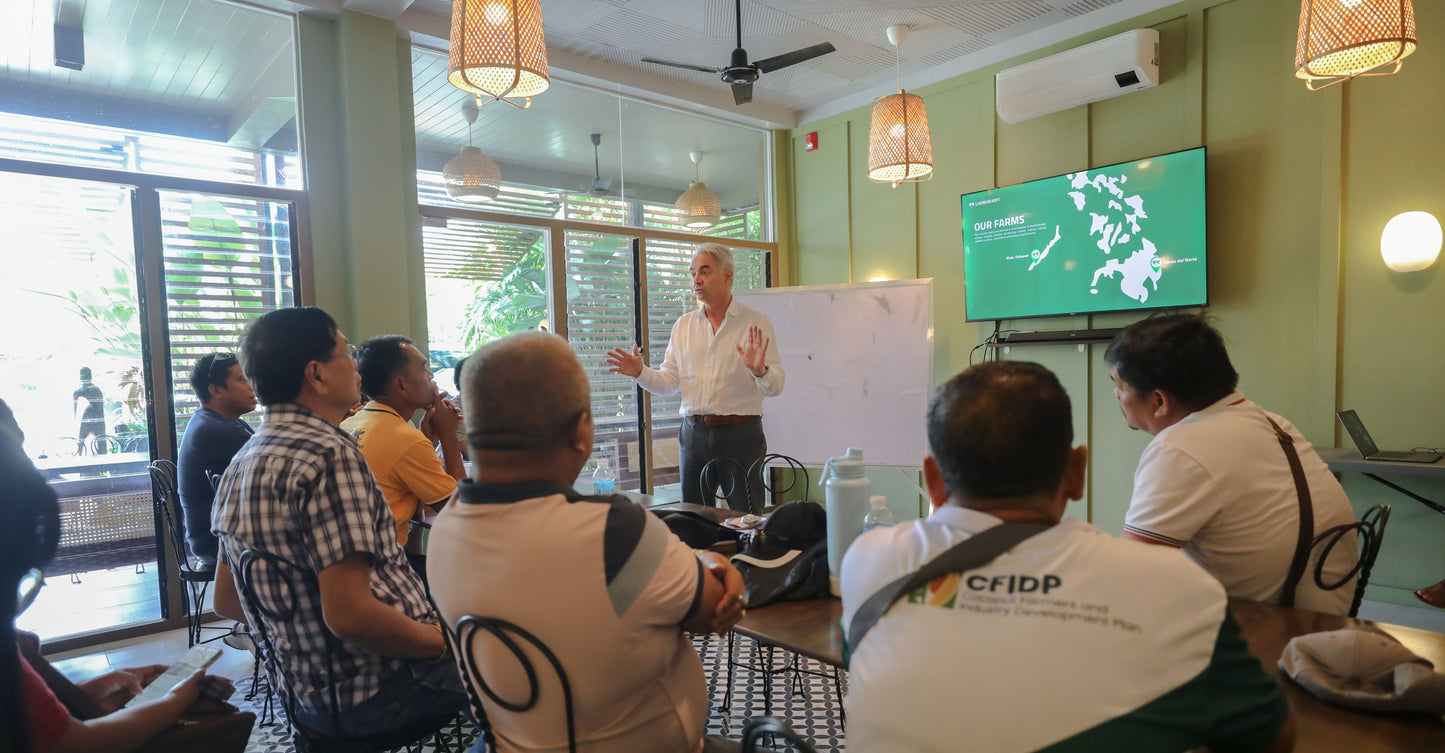
How a delegation from Surigao del Sur discovered new models for community-centered coconut farming
When government officials and coconut farmers from Surigao del Sur wanted to learn about successful community partnerships in agriculture, they didn't look to textbooks or conferences. They traveled to Palawan to see it in action.
In July 2025, a delegation from one of the Philippines' top coconut-producing provinces visited Lionheart Farms in Rizal, Palawan. Their mission: understand how a vertically integrated coconut operation successfully partners with indigenous communities while building a profitable business.

Why This Visit Mattered
Surigao del Sur produces serious coconut volume. With nearly 100,000 hectares under coconut cultivation, the province ranks among the Philippines' top producers. Barobo municipality alone produces over 24,000 metric tons annually.
But like many coconut regions, most farmers sell raw copra at low prices. The value-added processing happens elsewhere, and the profits follow. Meanwhile, indigenous peoples—who comprise 75% of the province's population—often remain on the margins of agricultural development.
The delegation saw potential in Lionheart's approach. Here was a company that had figured out how to create premium coconut sap-based products while genuinely partnering with indigenous communities. They wanted to understand how.
What They Found
The visit revealed a company that takes community engagement as seriously as production quality. Christian Eyde Moeller, Lionheart's CEO and Co-founder, walked the delegation through every aspect of their operations—from regenerative organic farming practices, their modern processing facilities, and their innovative global fulfillment platform.
But the real insights came from seeing their community partnership model in action. The delegation learned that Lionheart's indigenous partners benefit in four distinct ways:
- Land rental payments that provide ongoing income to community landowners
- Employment opportunities with full benefits and professional development
- Profit sharing that gives communities stake in business success
- Community investments including medical missions and educational programs
"Lionheart is not just focused on business—it is humanitarian. No one is left behind," observed Genevieve from MARDECO, one of the participating cooperatives.

Beyond the Numbers
The delegation spent two days examining every aspect of Lionheart's operations. They toured the organic fertilizer facility, where rice hull waste and other local materials get transformed into bio-organic fertilizers. They walked through coconut groves where sap harvesting was already underway. They saw the processing facility that operates 24/7 using renewable energy.
But perhaps the most telling detail was discovered at the end: the many tables in Lionheart's office lobby. These aren't for meetings—they're for monthly community dialogues where everyone participates, from elders, women to children. Issues get raised and resolved before they become conflicts.
"Lionheart engages the local communities in dialogue at least once a month and welcomes everybody," the delegation noted. This systematic approach to relationship-building prevents the community tensions that often derail agricultural projects.
The Professional Approach
What impressed the delegation most was Lionheart's systematic approach to everything. As Lowell, the GIZ technical advisor, put it: "Lionheart has clearly scrutinized every step of the business—from input supply to processing. There are clear protocols, and these are documented through real-time data gathering and analytics."
This isn't feel-good community work tacked onto a business. It's rigorous business systems applied to social impact. The same attention to detail that creates premium coconut products also creates sustainable community partnerships.

Looking Forward
The visit ended with serious discussions about replication. Marilyn from Surigao del Sur's Provincial Economic and Investment Promotion Office pitched the possibility of Lionheart establishing operations in their province.
Christian's response was characteristically systematic. Yes, they'd consider expansion, but certain conditions need to exist: closely clustered coconut farms, available farm workers trained in sap tapping, active local government support, and accessible capital.
These aren't unreasonable requirements—they're the foundation any serious agricultural venture needs. The delegation left with clear homework: consolidate the necessary data and begin ground-level preparations.

What This Means
This study mission represents something important happening in Philippine agriculture. Local governments and farming communities are actively seeking out successful models to replicate in their own contexts. They're not waiting for top-down programs or foreign solutions—they're learning from each other.
As Alice from Bislig City Agriculture Office observed: "As the company grows, the community grows as well. In scaling up similar partnerships in other parts of Mindanao, government has a big role to play."
The delegation returned to Surigao del Sur with more than just observations. They brought back a proven framework for community-centered agriculture and the commitment to adapt it to their own context.
For Lionheart, hosting this delegation reinforces their role as a model for the industry. Their success isn't just measured in coconut production—it's demonstrated by other communities wanting to learn from their approach.
That might be the most important harvest of all.

